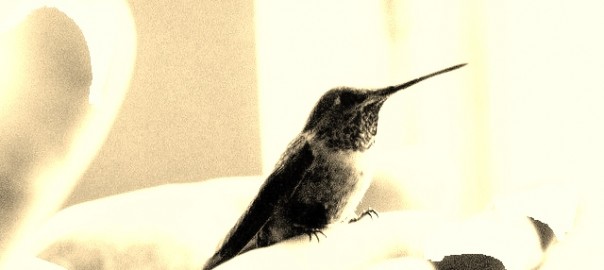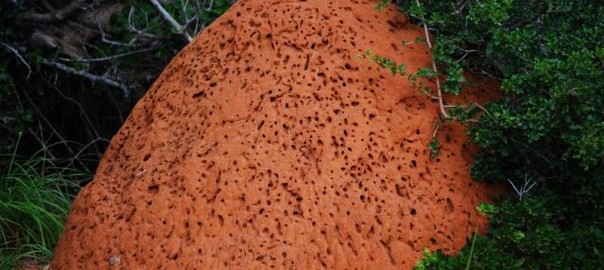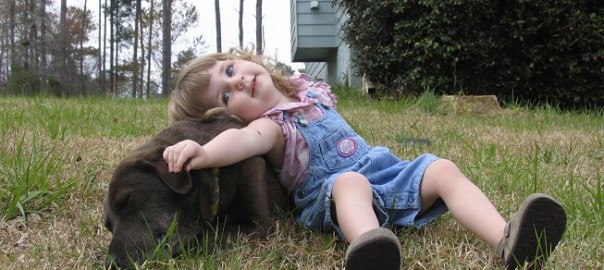My 7-year-old self walked aimlessly about a yard bereft of trees, neighbors hidden by the distance. I understood that walking could not carry me into my dear Grandma Christie’s arms ever again. But I had nowhere to go, anchored as I was to this ashen earth.
Grandma had gone into the clouds and changed from her rose-covered house dresses into a long white gown. And I gathered from Sunday school that they rode donkeys wherever she had gone. But I doubted that she would prefer that ride over the padded seats in her green Studebaker.
Without warning, a flock of hummingbirds interrupted my thoughts and surrounded me. Magical. A charm of hummingbirds, they are called. And charmed me they did, as well as comforted and delighted me. The charm of birds fully encircled me like angel hair envelops a Christmas tree.
Grandma loved cardinals. Could she have directed the child-sized hummingbirds to comfort me? I wondered. The birds lingered for a few precious moments, then disappeared, leaving me less burdened by my grandmother’s death.
The birds have it right: a congress of crows, a company of parrots, a ballet of swans, a watch of nightingales and a wake of buzzards.
I grew up in the country of eastern Kansas and went to a one-room schoolhouse. For show-and-tell, my parents finally let me take dad’s Japanese rifle, the one he brought home from World War II. I struggled against its weight, but the effort was well worth it. And sure enough, it elicited the anticipated ooh’s and aah’s.
But then Cheryl Moyer opened her big cardboard box. And my Japanese rifle was forgotten, because Cheryl’s box contained the huge dead horned owl her older brother shot hours before. Certainly not part of a charm. No, owls come in wisdoms. We were at once fascinated and fearful.
I have contemplated why we deferred to the power of guns. I grew up around guns. Dad is a natural sharpshooter. On brisk falls days, my mother’s brothers, gun enthusiasts, sought out deer. Today “gun” is an abstract word in an abstract world. “Gun” translates into power, winning and/or skill. In that little schoolhouse, the magnificence of the horned owl, paused in flight, enthralled us. Not its death.
We knew death. Mothers killed chickens and dressed them for dinner. Men butchered big, soft-eyed cattle bound for the freezer.
The kids in my school saw the release of life. We understood the carnage a gun renders upon a body. We recognized the coppery smell of blood and saw the real price of a bullet. The words “death” and “gun” had concrete meaning to us.
I knew a young man who was shot in the face. It was a hunting accident between a classmate’s father and another’s brother. The victim recovered, but the shooter was unable to liberate himself from his terrible guilt.
Today we throw away words as if they were worthless, but each emits a positive or a negative charge: stupid, good job, enemy, thank you, evil and hero.
Words can channel fear into a raging river of hatred. They can engender respect. Or they can change our worlds.
When I was a high school junior, five words strung together did just that. I sat in my vertically alphabetical desk, against a putrid green wall, a color forced upon all past students of a certain age. Mrs. Michaels roamed her English classroom as she often did, but this time she stopped at my desk, bent forward and whispered, “You should write for television,” then continued down the rows of desks.
Those words were like a trolley pulling me toward a platform destination I reached before branching out into other adventures. Thank you, Mrs. Michaels.
Words do matter. Rhetoric has the potential to wound or to heal or to heal wounds.
I had never seen a charm of hummingbirds before my grandmother passed away. Nor since that walk in the yard. But their charm comforted the little child I was. And after all these years, that memory still elicits a smile and a positive healing charge.
Copyright 2015 by Gloria Christie. All rights belong to the author and material may not be copied without the author’s express permission.


